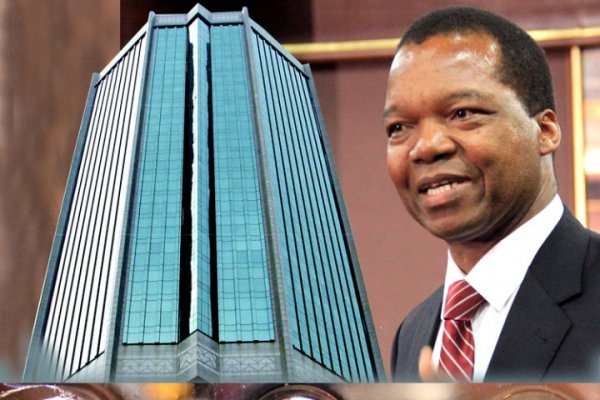
Zimbabwe’s central bank drip-fed dollars yesterday to a handful of commercial banks to allocate to large businesses, part of currency reforms authorities hope will ease a cash crunch that has starved the economy of many basic goods.
The southern African country ditched a discredited 1:1 dollar peg for its dollar-surrogate bond notes and electronic dollars last week, merging them into a lower-value transitional currency called the real time gross settlement (RTGS) dollar.
Analysts and industry experts have cautiously welcomed the central bank’s intervention and say government’s prior decision to fix the exchange rate only exacerbated the parallel market and intensified a pressing foreign currency shortage in the southern African nation.
The platform will only be available to corporates, while individuals will have to rely on bureaux de change, which can only sell amounts of up $10 000.
The RBZ insists that it has secured a facility to fund the banks, but like with all other interventions that the central bank has undertaken in trying to deal with the country’s currency crisis, details remain sketchy.
Authorities would not be drawn to disclose neither the source nor the quantum of the said facility.
According to banking sources, only a handful of banks had received dollars to trade from the central bank.
“From our side, we have only done a few transactions, but we have had a lot of enquiries on how the whole system will work. There certainly is interest from the market,” a source told the NewsDay.
- Chamisa under fire over US$120K donation
- Mavhunga puts DeMbare into Chibuku quarterfinals
- Pension funds bet on Cabora Bassa oilfields
- Councils defy govt fire tender directive
Keep Reading
Economists welcomed the move, but doubt it will prompt a swift turnaround in the southern African nation, which has grown used to currency turbulence since excessive money-printing under former leader Robert Mugabe triggered hyperinflation.
Ordinary Zimbabweans are not yet able to use the RTGS dollars in their bank accounts to buy dollars from banks, and the bond notes — which many businesses are reluctant to accept.
“The devaluation was long overdue. The economy has been in limbo and the RTGS can now play a role in boosting competitiveness,” Anthony Mandiwanza, chief executive of Zimbabwean food and dairy firm Dairibord, told Reuters.
“What is critical is that the government lives within its means and narrows and eliminates the fiscal deficit.”
The last time Zimbabwe had its own currency, a decade ago, Mugabe’s government turned on the printing presses to fund higher salaries for government workers and curry favour with the military — with disastrous economic results.
Mugabe’s successor Emmerson Mnangagwa has promised a break with the past, but many Zimbabweans are wary after his government ramped up borrowing in the lead-up to a national election last July and inflation rose to a 10-year high in January.
The central bank started selling US dollars to banks at 2,5 RTGS dollars on Friday.
Mandiwanza said banks had told Dairibord, the same day, that it could submit requests for dollars at around 2,5 RTGS dollars each and that it would receive an unspecified amount yesterday or today.
A dealer at a large bank in Harare, whose firm operates on the interbank market, said launching the RTGS at 3 to the dollar or higher would have been better to encourage US dollar sellers.
“There are a lot of (dollar) buyers … but no sellers because the rate is not high enough. What we are basically doing is allocating foreign currency to corporates, but no trading is taking place,” the dealer said.
Mnangagwa, who replaced Mugabe after a military coup in November 2017, hopes to steer the economy back to credibility and lure back foreign investors, who have also been deterred by violent security crackdowns on post-election protests last year and demonstrations last month against a steep fuel price hike.
The central bank has said it will let the RTGS dollar trade in a “managed float”.
But it has not explained how it would control the currency’s movements given that it does not have significant foreign exchange reserves. The currency dealer said the central bank was only selling dollars to banks that had lined up customers who had agreed to buy them.
“We have seen this before in the past and it went nowhere, the interbank system will ultimately become redundant if the Reserve Bank doesn’t allow the currency to freely trade,” the dealer said.
There are also indications that the central bank is not selling many dollars. Only around $5 million changed hands on Friday, a senior central bank official told The Standard newspaper in an article published at the weekend.
A Standard Chartered bank teller in Harare said her branch was not selling dollars to individuals yet, and downtown bank queues were now longer than normal.
Yesterday, one US dollar was being sold on the black market for RTGS $4 — those locked in individuals’ accounts for months due to the chronic cash shortages — compared to 4,2 on Friday, informal currency traders said.
“The big players are holding onto their money. That is what is holding rates at the moment,” one currency trader at Harare’s Eastgate shopping centre said.
International attitudes to Mnangagwa’s government have hardened since a violent security crackdown last summer on post-election protests and on demonstrations last month against a major fuel hike.
Staff Reporters/Reuters











